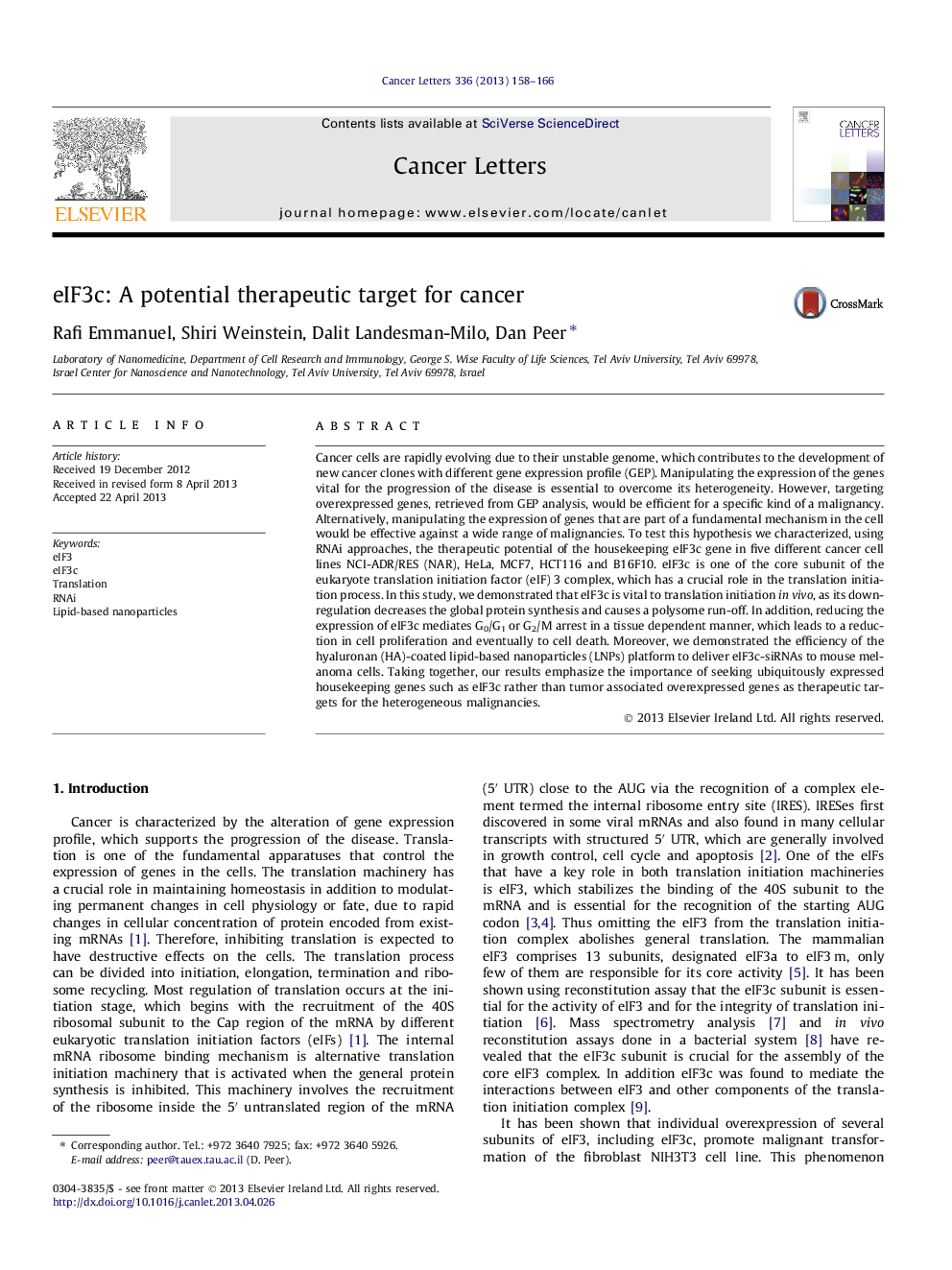| Article ID | Journal | Published Year | Pages | File Type |
|---|---|---|---|---|
| 2112817 | Cancer Letters | 2013 | 9 Pages |
Cancer cells are rapidly evolving due to their unstable genome, which contributes to the development of new cancer clones with different gene expression profile (GEP). Manipulating the expression of the genes vital for the progression of the disease is essential to overcome its heterogeneity. However, targeting overexpressed genes, retrieved from GEP analysis, would be efficient for a specific kind of a malignancy. Alternatively, manipulating the expression of genes that are part of a fundamental mechanism in the cell would be effective against a wide range of malignancies. To test this hypothesis we characterized, using RNAi approaches, the therapeutic potential of the housekeeping eIF3c gene in five different cancer cell lines NCI-ADR/RES (NAR), HeLa, MCF7, HCT116 and B16F10. eIF3c is one of the core subunit of the eukaryote translation initiation factor (eIF) 3 complex, which has a crucial role in the translation initiation process. In this study, we demonstrated that eIF3c is vital to translation initiation in vivo, as its downregulation decreases the global protein synthesis and causes a polysome run-off. In addition, reducing the expression of eIF3c mediates G0/G1 or G2/M arrest in a tissue dependent manner, which leads to a reduction in cell proliferation and eventually to cell death. Moreover, we demonstrated the efficiency of the hyaluronan (HA)-coated lipid-based nanoparticles (LNPs) platform to deliver eIF3c-siRNAs to mouse melanoma cells. Taking together, our results emphasize the importance of seeking ubiquitously expressed housekeeping genes such as eIF3c rather than tumor associated overexpressed genes as therapeutic targets for the heterogeneous malignancies.
